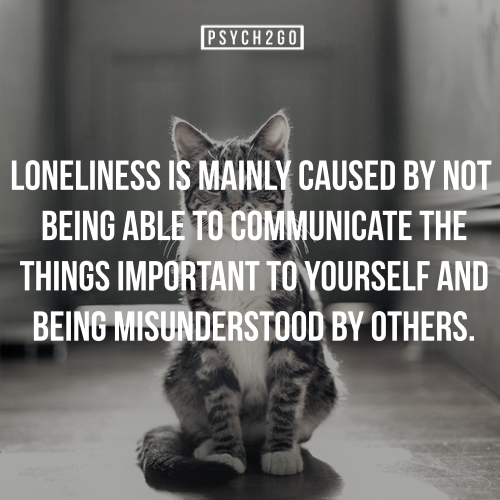Hey!! So A Lot Of Us Are Interested About Space But Don’t Know How To Go About Studying About It, This

hey!! so a lot of us are interested about space but don’t know how to go about studying about it, this is a masterpost for all of those people who wish to learn about the universe <3
learn!!!
astronomy crash course
space + nasa news
bbc space
nasa space place
best space documentaries
best space books + sci-fi
best science + tech podcasts
posts + fun stuff!!
how we’d live on mars infographic
my space tag on my main blog!! [actually my url means space in maltese B-)]
the nasa instagram which is my fav!!!
nasa shop
nasa website yo!!!
spatial tunes
fav space app!!!!
25 best space movies
spatial studyspo here
my masterposts
notes, studying, and self-study resources
self-study resources
supplies
igcse resources
improving your handwriting
how to studyblr
literature masterpost
organisation
aesthetically pleasing notes
annotating
studying a foreign language
really great apps
math
college + uni
motivation
biology
+ more
hope this helps!!! feel free to come talk to me about space anytime <3
More Posts from Tobefoundlater and Others









How Our Solar System Will End In The Far Future
“Gravitational ejection is about 100 times more likely than a random merger, meaning our star and the remaining bound planets will probably be ejected into the abyss of now-empty space after around 10^19 years. But even at that, with Earth orbiting our stellar remnant and with nothing else around, things won’t last forever. Every orbit — even gravitational orbits in General Relativity — will very, very slowly decay over time. It might take an exceptionally long time, some 10^150 years, but eventually, the Earth (and all the planets, after enough time) will have their orbits decay, and will spiral into the central mass of our Solar System.”
Worried about the environment of Earth today? Here’s a sobering fact: we already know how it’s all going to end. Not just when the next ice age will come or the next supervolcano will blow, but on cosmic scales stretching billions of years into the future and beyond. From the death of life on Earth to the end of the Sun, we can predict some major catastrophes our Solar System will face. But even after the Sun has died, the Earth and what’s left of our parent star will likely stick around for more. The matter expelled by our Sun will ignite new stars, which will die as well. White dwarfs will cool off into black dwarfs, and the Universe will go dark. And yet, thanks to gravitational effects, more interactions, on long enough timescales, will still remain.
Come get the long-term story of the future of our Solar System and see how it all will, in the ultra-distant future, come to an end.


Timeline of the Far Future. While scientific predictions of the future can never be absolutely certain, present understanding in various fields allows for the prediction of far future events, if only in the broadest strokes. These fields include astrophysics, which has revealed how planets and stars form, interact, and die; particle physics, which has revealed how matter behaves at the smallest scales; evolutionary biology, which predicts how life will evolve over time; and plate tectonics, which shows how continents shift over millennia. All projections of the future of the Earth, the Solar System, and the Universe must account for the second law of thermodynamics, which states that entropy, or a loss of the energy available to do work, must increase over time. Stars eventually must exhaust their supply of hydrogen fuel and burn out. Close encounters gravitationally fling planets from their star systems, and star systems from galaxies. Eventually, matter itself is expected to come under the influence of radioactive decay, as even the most stable materials break apart into subatomic particles. Current data suggest that the universe has a flat geometry (or very close to flat), and thus, will not collapse in on itself after a finite time, and the infinite future potentially allows for the occurrence of a number of massively improbable events, such as the formation of a Boltzmann brain. This timeline coverS events from roughly eight thousand years from now to the furthest reaches of future time. A number of alternate future events are listed to account for questions still unresolved, such as whether humans will become extinct, whether protons decay, or whether Earth will survive the Sun’s expansion into a red giant.

13017 || last week’s spread 💫





▪06.03.17 ▪ So so happy with this spread :“) I started on it when I was in a real bad state but now the week is over and something beautiful came out of it so I’m very grateful to the powers that be.
▪veritas vos liberabit - the truth shall set you free
▪









If you like interesting factoids like these, follow us @psych2go. We will also be sharing interesting psychology articles along the way.

honestly?? this pic was just an excuse to show my milk bottle shaped flask i got from sm town in seoul,, it has #luckyone stamped on it and i lov it bc im exo trash anyway if y’all are interested in purchasing the two lovely notebooks shown in the pic, use my code “LUSTRE10″ on messybunny or “studylustre” on kawaiipenshop for 10% off!! they both have free international shipping woOoOo ✨
ig: studylustre




recent bujo spread ft. fortunes from a shrine and snaps from my trip to the tate ✨ ig: studylustre


https://www.instagram.com/ctrl.st/



Hello everyone! Since my second semester of college has started, I decided to start a bullet journal. It’s definitely a work in progress but I’m doing my best :)

49/100 - taken from studygram! | visit my store
↳ apush is killing me
-
 scigirl123 liked this · 8 months ago
scigirl123 liked this · 8 months ago -
 hounddogmoment liked this · 9 months ago
hounddogmoment liked this · 9 months ago -
 inperfectimperial liked this · 1 year ago
inperfectimperial liked this · 1 year ago -
 cryingunderthewaterfall reblogged this · 1 year ago
cryingunderthewaterfall reblogged this · 1 year ago -
 cryingunderthewaterfall liked this · 1 year ago
cryingunderthewaterfall liked this · 1 year ago -
 arpeggione liked this · 2 years ago
arpeggione liked this · 2 years ago -
 adikusworld liked this · 2 years ago
adikusworld liked this · 2 years ago -
 anecdochees reblogged this · 2 years ago
anecdochees reblogged this · 2 years ago -
 chiaroscurovoyant liked this · 2 years ago
chiaroscurovoyant liked this · 2 years ago -
 nadjafsafarov liked this · 2 years ago
nadjafsafarov liked this · 2 years ago -
 mattchless reblogged this · 2 years ago
mattchless reblogged this · 2 years ago -
 annalearnsstuff liked this · 2 years ago
annalearnsstuff liked this · 2 years ago -
 arisktotle reblogged this · 3 years ago
arisktotle reblogged this · 3 years ago -
 heyitsmissalexandrealuddington liked this · 3 years ago
heyitsmissalexandrealuddington liked this · 3 years ago -
 kirby772 liked this · 3 years ago
kirby772 liked this · 3 years ago -
 whorror-barbie liked this · 3 years ago
whorror-barbie liked this · 3 years ago -
 savvnog liked this · 3 years ago
savvnog liked this · 3 years ago -
 ashitaka reblogged this · 3 years ago
ashitaka reblogged this · 3 years ago -
 academicbutaddsomechaos liked this · 3 years ago
academicbutaddsomechaos liked this · 3 years ago -
 dangx liked this · 3 years ago
dangx liked this · 3 years ago -
 astrophilia-hiraeth reblogged this · 3 years ago
astrophilia-hiraeth reblogged this · 3 years ago -
 iftheskieswerepinkandwhite liked this · 3 years ago
iftheskieswerepinkandwhite liked this · 3 years ago -
 reasontokill liked this · 3 years ago
reasontokill liked this · 3 years ago -
 abriefstudyofbio liked this · 3 years ago
abriefstudyofbio liked this · 3 years ago -
 anti-heroism liked this · 3 years ago
anti-heroism liked this · 3 years ago -
 stardustbroughttolife liked this · 3 years ago
stardustbroughttolife liked this · 3 years ago -
 daech-witless liked this · 3 years ago
daech-witless liked this · 3 years ago -
 a-teenagewitch liked this · 3 years ago
a-teenagewitch liked this · 3 years ago -
 imthecookiedunkedinmilk liked this · 3 years ago
imthecookiedunkedinmilk liked this · 3 years ago -
 stuffforme-fitness liked this · 3 years ago
stuffforme-fitness liked this · 3 years ago -
 suicidewords liked this · 4 years ago
suicidewords liked this · 4 years ago -
 hollandrhododendron liked this · 4 years ago
hollandrhododendron liked this · 4 years ago -
 db4yup liked this · 4 years ago
db4yup liked this · 4 years ago -
 bluedinosaurcupcake liked this · 4 years ago
bluedinosaurcupcake liked this · 4 years ago -
 karakolia liked this · 4 years ago
karakolia liked this · 4 years ago -
 betterasaconcept liked this · 4 years ago
betterasaconcept liked this · 4 years ago